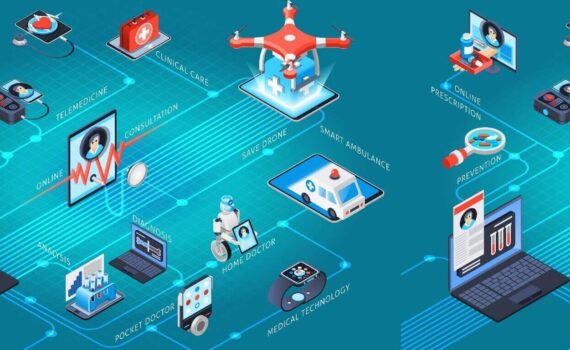In 2019, health care sector invested $4 billion into AI-based applications across 367 deals. There had been lots of news around Artificial intelligence in the field of drug discovery and precision medicine based on advanced software systems developed by IBM Watson and Google DeepMind. In the similar yet not so popular manner AI is being explored for the development of advance drug delivery devices such as autoinjectors, wearable devices and prefilled syringes. In fact, these drug delivery solutions can prove to be quintessential vehicles for drug administration in disease outbreaks / pandemics (such as the one being faced due to the COVID-19).

Could this just be the tip of the iceberg as AI spreads across the drug development and delivery process?
The drug-device market already has certain advanced software with connected platform that help in transfer of data from these devices to a secure system which could act as repository for the HCPs. Connected drug delivery devices provide the ability of capturing patient data automatically and using it to support patients directly in medication management or enabling others, such as HCPs, to provide timely and circumstantial support based on reliable and computable data. What if these devices can analyse consumer behaviour and customise delivery devices as per individual behaviour and clinical requirement. The collected data provide a better view of what the patient journey looks like about things like drug interactions, understanding side-effect profiles, and documenting quality-of-life outcomes. The main objective is to look at the patient journey, their daily workflow, and the challenges both in the use of the drug, understanding the use case for the drug and provide customise delivery devices.

- The field of wearable device is presently witnessing a lot of innovation, such as the development of integrated mobile applications with smart health monitoring, artificial intelligence algorithms and other interesting features (including dose reminders and connecting to cloud-based portals for sharing device data with the concerned healthcare practioner), visual / audible drug delivery notifications, automatic drug reconstitution, and error alerts.
- There is growing use of upgraded inhalers backed with artificial intelligence-powered sensors in the respiratory therapy. The sensors run real-time machine learning algorithms, which shows the advantages of using artificial intelligence (AI) with end devices, integrated within a medical product. The collected data is stored, processed, and encoded independently on the sensor device. This approach is advantageous in terms of security, functionality, cost, and power consumption. The device can offer effective guidance to patients while they are using their inhaler. The device can offer dose reminders and enhance the quality of the inhalation technique. Additionally, the medical device can apply advanced cryptographic techniques without remarkably impacting the power drain of the overall system, while ensuring an optimal degree of data privacy and cybersecurity. The price related with data persistence and storage are minimised. Finally, life of battery is extended with swift and economical over-the-air data transfer.
- Add-on devices introduce additional connectivity interface to drug-delivery devices. For example, user can attach the device to a disposable autoinjector before an injection and to remove it afterwards. The benefits include user acceptance of tele-medicine, Patient adherence to dosage and clinical trial monitoring.
The changing paradigm for connected devices among the audience:
As per one of the Survey using Autoinjectors:
- It was an initial user study conducted on 14 participants, among them six were injection naïve and eight were experienced autoinjector users.
- 75% of (six out of eight) experienced users preferred the smart device having artificial intelligence (AI) over their existing simple device and five out of eight (5/8) wanted a connected smartphone app that would support them with management features such as patient diaries and dose reminders
- All six naive users thought an app would be useful, with smart reminders and the calendar history view most of interest.
- When compared on the rating of 1-10 (10 being most environmentally sustainable) the average rating for the basic smart AI device was 6.2 compared with 2.0 for the current disposable device.
- It was an initial user study conducted on 14 participants, among them six were injection naïve and eight were experienced autoinjector users.
This clearly highlights the increasing propensity of the patients towards smart devices backed by artificial intelligence.
In the end would like to conclude by saying that despite these developments, there is still a lot to accomplish in healthcare and pharma sciences sectors that lag behind other industries as far as artificial intelligence is concerned.
References:






